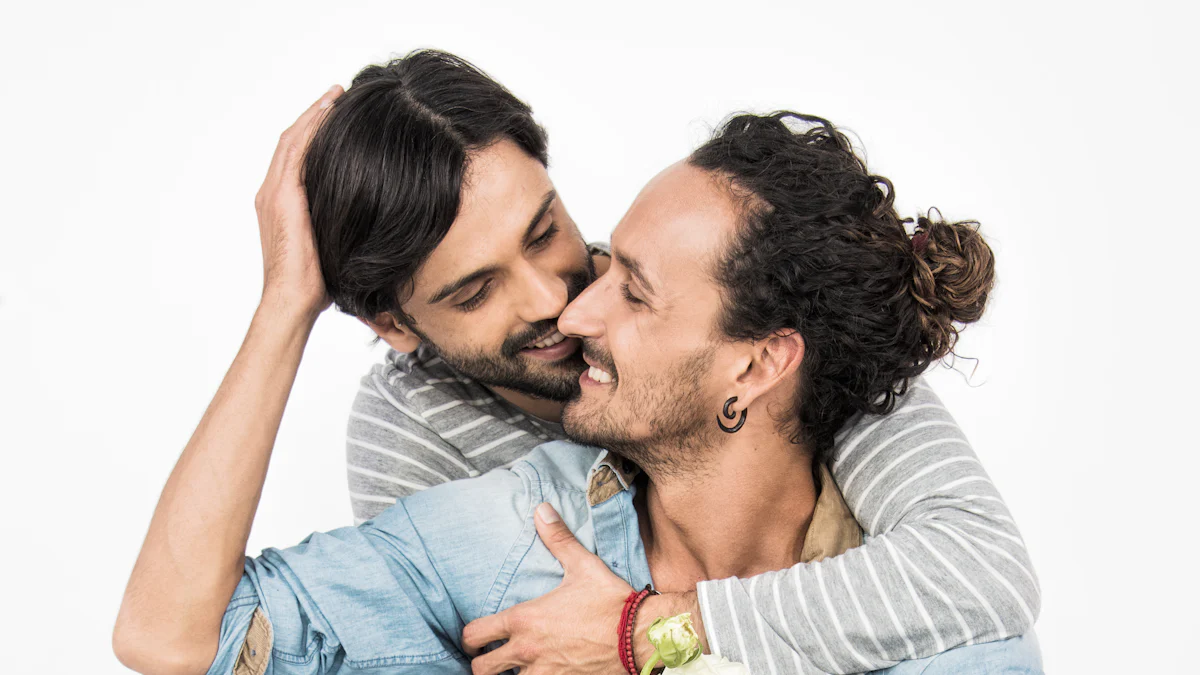Intimacy forms the heart of every relationship. Strong connections create happiness and fulfillment. LGBTQ couples often experience unique challenges. Societal pressures and discrimination can impact relationships. Specialized therapy can help address these issues. Building deeper connections requires understanding and effort. Every couple deserves a fulfilling and intimate bond.
Understanding Intimacy in LGBTQ+ Relationships

Defining Intimacy
Intimacy means different things to different people. In LGBTQ relationships, intimacy takes on unique dimensions. Let's explore the types of intimacy that can strengthen your bond.
Emotional Intimacy
Emotional intimacy involves sharing your feelings and thoughts openly. You and your partner can build a strong emotional connection by being honest and supportive. This type of intimacy helps you understand each other's needs and desires better.
Physical Intimacy
Physical intimacy goes beyond sexual activities. Holding hands, hugging, and cuddling create a sense of closeness. These simple gestures can enhance your relationship and make you feel more connected.
Intellectual Intimacy
Intellectual intimacy involves sharing ideas and engaging in meaningful conversations. Discussing topics that interest both of you can bring you closer. This type of intimacy encourages growth and understanding in your relationship.
Unique Challenges
LGBTQ couples face specific challenges that can affect intimacy. Understanding these challenges can help you navigate them more effectively.
Societal Pressures
Societal pressures can impact your relationship. Discrimination and prejudice may create stress and tension. Recognizing these pressures allows you to address them together. Support from friends or community groups can help you cope.
Internalized Prejudices
Internalized prejudices can affect how you view yourself and your relationship. These negative beliefs may stem from societal norms. Overcoming these prejudices requires self-awareness and open communication with your partner.
Communication Barriers
Communication barriers can hinder intimacy. Misunderstandings and assumptions may lead to conflicts. Practicing active listening and expressing your thoughts clearly can improve communication. Specialized therapy for LGBTQ couples can also provide valuable tools to enhance communication.
Building a Strong Foundation
Creating a strong foundation in your relationship involves open communication and trust. These elements help you connect on a deeper level.
Open Communication
Open communication forms the backbone of any successful relationship. You can strengthen your bond by focusing on two key aspects.
Active Listening
Active listening means truly hearing what your partner says. You give full attention and respond thoughtfully. This practice helps you understand each other's perspectives and feelings. Research shows that effective communication strategies enhance emotional intimacy.
Expressing Needs and Desires
Expressing needs and desires clearly is essential. You should feel comfortable sharing what you want in the relationship. This openness fosters a supportive environment. Couples who communicate openly often experience greater satisfaction and connection.
Trust and Vulnerability
Trust and vulnerability go hand in hand. Building these qualities takes time and effort, but the rewards are immense.
Building Trust
Building trust requires consistency and honesty. You gain trust by being reliable and truthful. Trust creates a safe space where both partners feel secure. Insights from LGBTQ+ couples highlight the importance of trust in nurturing healthy relationships.
Embracing Vulnerability
Embracing vulnerability means allowing yourself to be open and honest. You show your true self without fear of judgment. This openness deepens your connection and strengthens your bond. Therapy can help couples overcome challenges related to self-esteem and empathy, enhancing vulnerability.
By focusing on these elements, you create a strong foundation for your relationship. This foundation supports growth and intimacy, helping your relationship thrive.
Strategies for Enhancing Intimacy

Enhancing intimacy in LGBTQ relationships involves intentional efforts. You can explore various strategies to deepen your connection with your partner.
Quality Time Together
Spending quality time together strengthens your bond. Engaging in activities you both enjoy creates shared memories and fosters closeness.
Shared Activities
Participate in activities that interest both of you. Cooking a meal, hiking, or attending a concert can bring joy and connection. Shared experiences help you learn more about each other and build a strong partnership.
Date Nights
Plan regular date nights to keep the romance alive. A simple dinner or a movie night at home can create special moments. Consistent date nights show commitment and care, enhancing emotional intimacy.
Exploring New Experiences
Trying new things together adds excitement to your relationship. New experiences can reignite passion and curiosity in LGBTQ couples.
Trying New Things
Explore hobbies or interests you haven't tried before. Take a dance class or learn a new language. These activities encourage growth and understanding, enriching your relationship.
Traveling Together
Traveling offers opportunities to discover new places and cultures. Plan a weekend getaway or a longer vacation. Traveling together helps you create lasting memories and strengthens your connection.
Seeking Professional Support
Professional support can provide valuable insights and tools for enhancing intimacy. Many LGBTQ couples find therapy and support groups helpful.
Couples Therapy
Couples therapy offers a safe space to explore relationship dynamics. A therapist can guide you in understanding emotions and improving communication. Therapy helps you address challenges and build a healthier relationship.
Expert Insight: "Essential early goals in working with LGBTQ relationships include helping patients recognize their shame, particularly about their emotions; helping their partners be understanding and supportive about this struggle."
Support Groups
Join support groups to connect with others who share similar experiences. Sharing stories and advice with peers can offer comfort and encouragement. Support groups provide a sense of community and belonging, enhancing your relationship.
Embrace these strategies to nurture intimacy in your LGBTQ relationship. Every effort you make contributes to a deeper, more fulfilling connection.
Reflect on the strategies explored. Prioritize intimacy in your relationship. Focus on open communication and shared experiences. Consider professional support if needed. Every effort strengthens your connection. Nurturing LGBTQ relationships requires understanding and commitment. Embrace the journey toward deeper intimacy. Celebrate the unique bond you share with your partner.
LGBTQ Therapist Insight: "Intimacy can be a challenge, but practical advice helps nurture it."
Remember, love and connection deserve attention and care.



